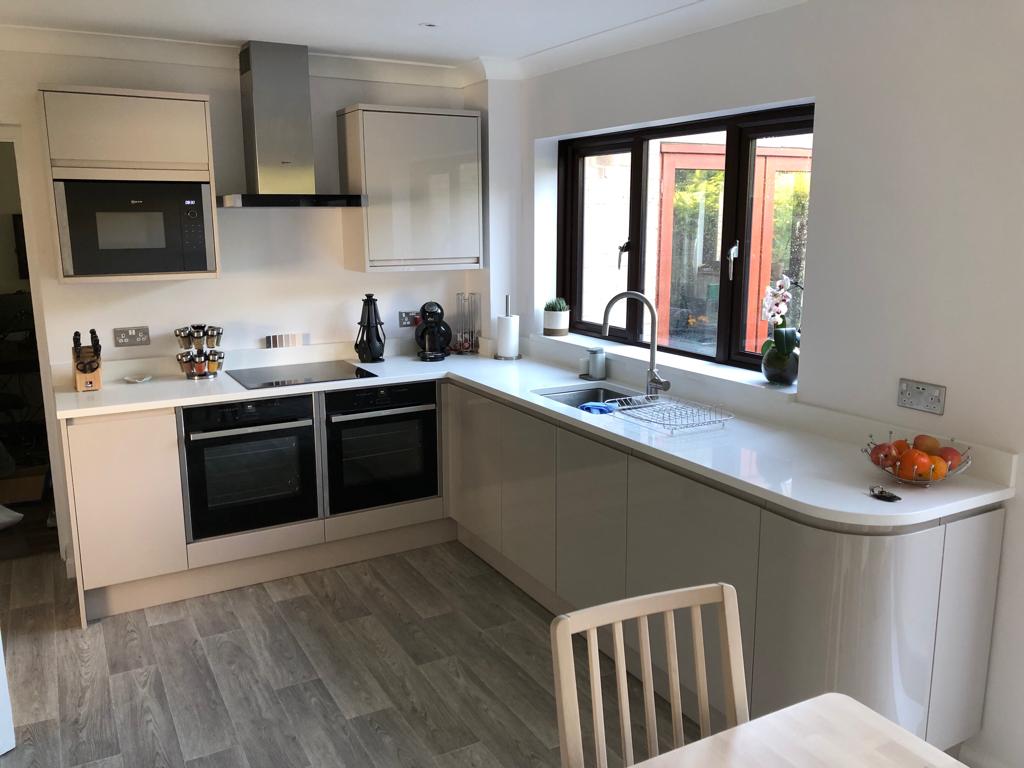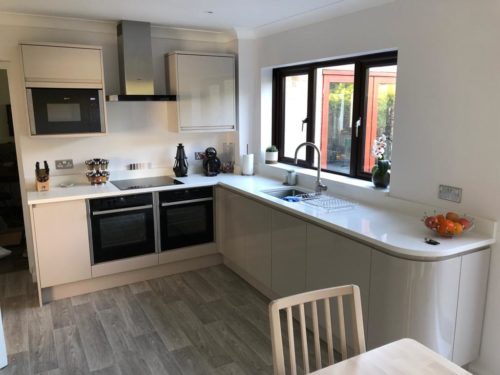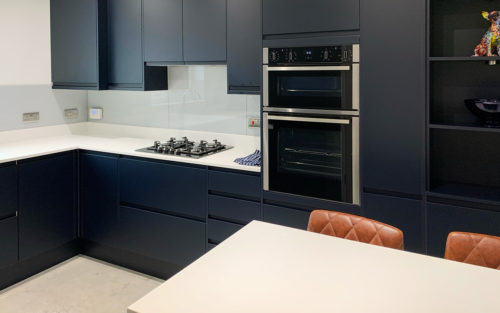Quartz is one of the hardest materials known to man and registers a 7 on the Mohs scale of hardness: only topaz, corundum, and diamond are harder. While it is still possible to find slabs of natural quartz, most of the quartz worktops available are man-made, comprising about 93% natural quartz, while the rest consists of polymer resins and pigments.
The resins used in quartz worktops make them totally non-porous which means that they cannot stain, nor can they harbour bacteria, so they are the ideal material for a kitchen worktop where food is prepared and where there are always going to be the occasional spills, no matter how careful you are. However, while quartz worktops are heat resistant up to about 204°F you should not put very hot pans directly on the surface because the resin content means that they could burn or crack, especially if the heat changes rapidly. As with all other worktop materials, you should always use a trivet to place hot pans on.
Not only can you use quartz for worktops, but it can also be used for wall tiles or floor tiles. It can be cut as thin as 7mm, and this means that it can also be used to cap an existing worktop. In addition, using a slab this thin means that there is less weight for the cabinetry to carry and it may avoid having to reinforce the cabinets which might be needed with other stones such as granite or marble. The flexural strength of quartz overall is four times that of granite, and quartz worktops also have double the impact resistance. Nonetheless, you should still take care not to drop heavy cast iron pans on them. It is always possible to chip the edges.
When using quartz for floor tiles you have a choice of a huge range of colours and patterns, so there is plenty of scope to fit in with your décor. Furthermore, if you opt for a muted or neutral colour you can be sure that it will always go with whatever other colour you choose to decorate the room in future.
Quartz is also perfect for floor tiles because of its’ great strength. Even if you put heavy furniture on it the weight will not harm it. It is also very low maintenance. In fact, other than regular cleaning which you would do anyway, no other maintenance is necessary. If you spill anything on the floor, that won’t harm it either, as it is non-porous. The only disadvantage of that is that it could cause slips and falls if you leave a spill on it because the quartz won’t absorb it and so it will only dry naturally. The simple answer is to wipe up any spills.
If you are considering quartz worktops in Welwyn, or anywhere else in London and the Home Counties, at Marble & Granite we work with nearly twenty different manufacturers of quartz slabs, which gives you a massive choice of different colours and patterns. We also offer special pricing on the Caesarstone, NS Stone, Nilestone, & Quartzforms brands.
One thing that you should note about quartz worktops is that if you decide to choose a honed finish, then that is more susceptible to spills from red wine, food colouring, lemon juice, coffee, and so on, so they should be wiped up immediately. Despite their great strength, as with all other work surfaces you should not chop foods directly on them, but always use a chopping board. That aside you can roll pastry on them and prepare all types of food since quartz will only require at most a wipe with some washing up liquid and a cloth or even kitchen towel. There is a huge choice of different patterns and colours in quartz worktops, and one of the advantages is that because it is engineered stone you can be certain that however long your worktop is the pattern will be the same all the way through. This is not necessarily the case with natural stones, because they vary from slab to slab, so you will not get an even colour or pattern over a longer worktop. For some people this may be desirable, but if you want an even colour and pattern, then quartz offers you that as well.




